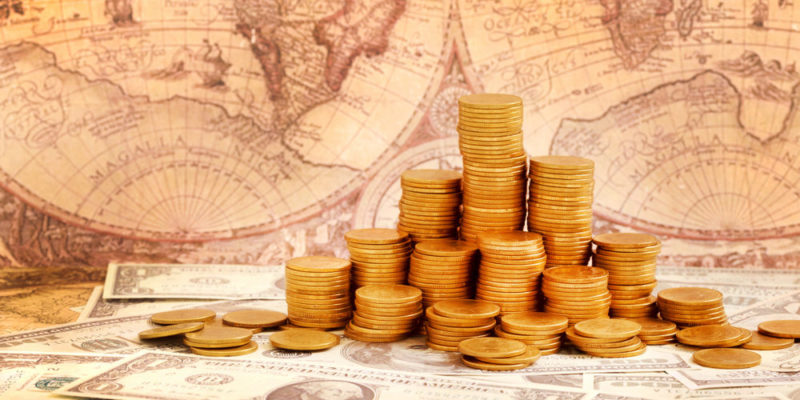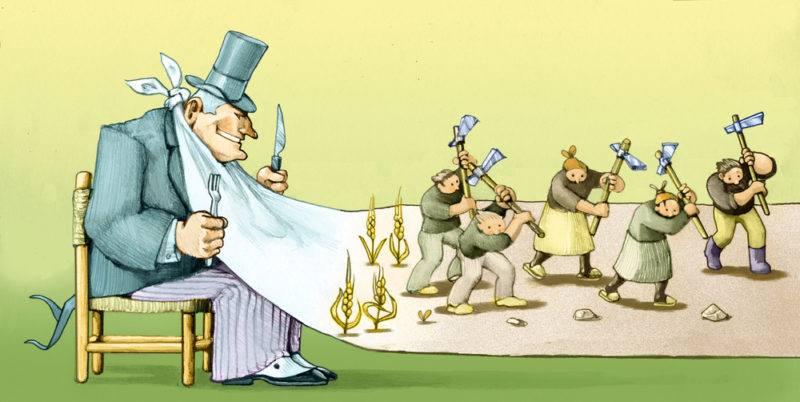We explain what capitalism is, its characteristics and how the State intervenes. Its advantages, disadvantages, what is the capital gain and more.
What is Capitalism?
Capitalism is an economic and social system that is based on private ownership of the means of production and on capital ( money ) as a generator of wealth, through trade in the free market .
It is the dominant system that emerged after the defeat of European feudalism after the French Revolution and was influenced by the Industrial Revolution of the late 18th century. Scottish philosopher Adam Smith wrote the principles of the value of work, such as specialization and division of tasks in favor of productive capacity.
However, capitalism has come to promote exploitation and child labor, due to the desire of the capitalists in their quest to obtain the maximum profit from the work of their employees.
Most of the capitalist countries today are developed through a system called "mixed economy" in which there is some intervention of the State to regulate taxes, prices and competition in the market.
Characteristics of capitalism
 The main characteristics of capitalism are:
The main characteristics of capitalism are:
- Private ownership of the means of production. It consists of the lands, factories, tools and other productive systems that belong to private capital, not to the State or to the communities .
- Market freedom. It is that anyone has the right to buy or sell, even their work as a service, and to negotiate the price that suits them.
- The invisible hand of the market. It consists in the fact that individual economic interests and actions contribute to the well-being of society as a whole and that the State must intervene as little as possible in the market .
- Freedom of company. It is that anyone can start a business, as long as they assume the risks, and obtain benefits. This encourages competition and improvement in the quality of production and prices.
- The market. It consists of a space where products and services are traded and negotiated for free competition, which is governed by the law of supply and demand .
State intervention

State intervention in the capitalist system is necessary to manage national defense and regulate foreign trade , as long as it intervenes moderately.
The State legislates to avoid the formation of monopolies , especially of companies that provide basic water , energy and telecommunications services, and to promote national production in order to maintain a stable and competent economy with other countries.
In cases where the state intervenes in most market decisions in order to have in its possession most of the means of production and their consequent profit, it is considered a communist system .
There are many variants of economic and political systems as many countries in the world. Neither communism nor capitalism have managed to implement their pure ideologies, due to the corruption of party politics that leads to monopolies that absorb all control and power.
Advantages and disadvantages of capitalism
 The capitalist system has advantages such as:
The capitalist system has advantages such as:
- Promote the development of ventures.
- Allow respect for individual rights.
- Generate a lot of wealth with private equity investment.
- Access to private property.
- Promote the freedom to buy and sell goods and services.
- Increase the ability to save and invest.
The capitalist system has disadvantages such as:
- Ignore the consequent costs of the production system, such as pollution and abuse of natural resources.
- Promote equal conditions, but not opportunities for the elderly or disabled.
- Limit diversity and innovation as a consequence of social inequality.
- Increase competition for money because it is the only engine of interest.
- Induce monopoly in corrupt government systems.
Capitalist system capital gains
 The capital gain is the profit that the capitalist expects to obtain on his investment . The problem is that this profit from the sale returns to the capitalist and not to the worker who provided his labor.
The capital gain is the profit that the capitalist expects to obtain on his investment . The problem is that this profit from the sale returns to the capitalist and not to the worker who provided his labor.According to the economist and thinker Karl Marx , surplus value is a masked theft that contributes to labor exploitation and the enrichment of the capitalist, which could unleash monopolies and oligarchic systems .
However, for the economist Adam Smith, the worker is free to choose a job where he is paid a better salary: the greater the supply of jobs, the higher the salaries for the workers may be.
Reality has shown that, if there are many people without work, the demand for jobs increases and the supply of wages decreases, which is advantageous for the capitalist.
In order to refute this reality, capitalism supports an unlimited growth of corporations , despite the fact that the planet's resources are limited and cannot be provided infinitely, nor can so much consequential contamination of the production and mass consumption system be processed. .
Examples of capitalist countries
Some examples of countries that apply the capitalist system in the purest way are:
- Germany
- Australia
- Canada
- United Arab Emirates
- U.S
- France
- Japan
- Hong Kong
- Ireland
- New Zealand
- United Kingdom
- Singapore
The above content published at Collaborative Research Group is for informational and educational purposes only and has been developed by referring to reliable sources and recommendations from technology experts. We do not have any contact with official entities nor do we intend to replace the information that they emit.
Anas is an editor of a prestigious publishing company in the United States. She studied Mathematics in Arizona. Anas is also a teacher and one of her long-term goals is to build an institution that offers free education to everyone who are financially not stable. .
Leave a reply
Your email address will not be published. Required fields are marked *Recent post

Sport: What Is It, Types, Risks, Features, Characteristics and Examples

Dogs: Emergence, Features, Characteristics, Feeding and Breeds

Story: Definition, Elements, Structure, Features and Characteristics

